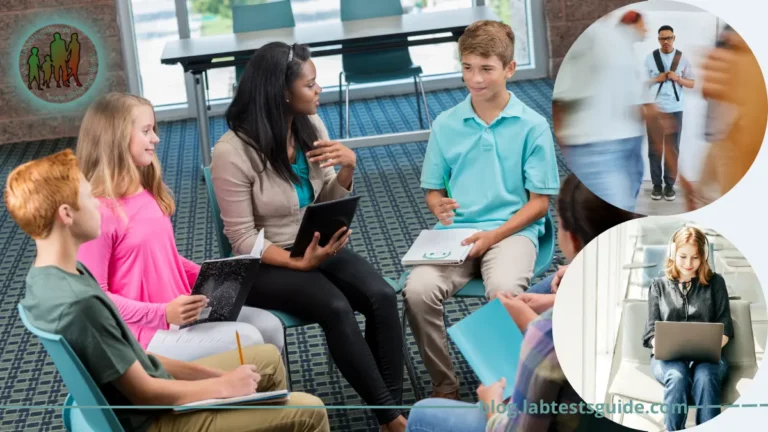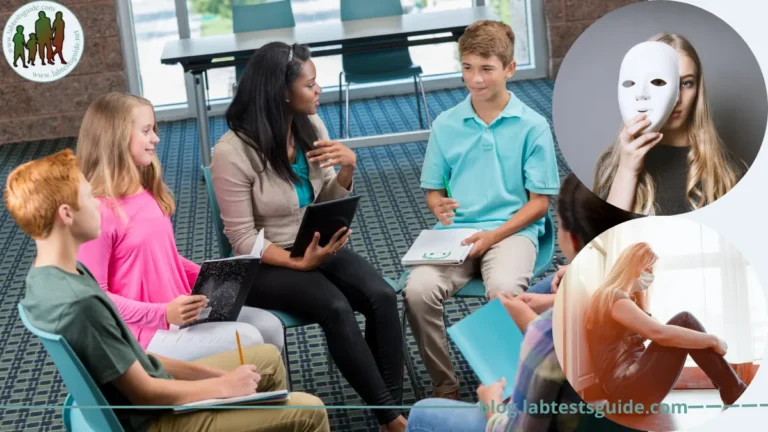Anger Management Tips: Anger is a natural and common emotion that everyone experiences from time to time, including teenagers. While feeling angry is normal, it is important for teens to learn how to manage and express their anger in healthy ways. Uncontrolled anger can lead to harmful consequences, strained relationships, and even physical violence.

The purpose of anger management for teens is to provide them with strategies and techniques to effectively understand, control, and express their anger. By developing these skills, teens can improve their emotional well-being, reduce conflicts, and maintain healthier relationships.
This guide on anger management tips for teens aims to equip young individuals with practical tools and insights to better manage their anger. It will explore various aspects of anger management, including recognizing triggers, relaxation techniques, communication skills, problem-solving strategies, stress management, and seeking support.
By implementing these techniques, teens can gain a better understanding of their anger, learn to respond to triggering situations in a more constructive manner, and ultimately develop healthier emotional habits. Anger management is a valuable skill that can positively impact teens’ personal growth, relationships, and overall quality of life.
Recognizing Triggers:
Here are two key categories of triggers to consider.
- Identifying Personal Triggers: Teens should reflect on their own experiences and emotions to pinpoint what specifically triggers their anger. These triggers can vary from person to person and may include situations such as feeling disrespected, being criticized, or facing disappointment. It is important for teens to develop self-awareness and recognize the specific events or circumstances that tend to provoke their anger.
- Environmental Triggers: In addition to personal triggers, environmental factors can also contribute to anger. These triggers may include loud noises, crowded spaces, conflicts with peers or family members, or stressful situations such as exams or deadlines. By being mindful of their surroundings and paying attention to how their environment affects their emotions, teens can gain a better understanding of the external triggers that impact their anger.
By identifying and becoming aware of their personal and environmental triggers, teens can take proactive steps to manage their anger more effectively. This self-awareness allows them to anticipate potential triggers, develop coping mechanisms, and implement anger management strategies to prevent or navigate through situations that may lead to anger.
Relaxation Techniques:
Here are several relaxation techniques that can be effective for teens.
Deep Breathing Exercises: Deep breathing involves taking slow, deep breaths, focusing on inhaling and exhaling fully. This technique helps activate the body’s relaxation response, reducing feelings of anger and tension.
Progressive Muscle Relaxation: This technique involves systematically tensing and relaxing different muscle groups in the body. By consciously tensing and releasing muscles, teens can experience a deep sense of relaxation and relief from physical and emotional tension.
Guided Imagery: Guided imagery involves creating vivid mental images of calming and peaceful scenes. Teens can listen to guided audio recordings or use their imagination to visualize serene environments, which can help them relax and shift their focus away from anger.
Mindfulness and Meditation: Mindfulness practices involve focusing attention on the present moment without judgment. Meditation techniques, such as mindfulness meditation or loving-kindness meditation, can help teens cultivate awareness, acceptance, and a sense of calmness.
Implementing these relaxation techniques regularly can provide teens with effective tools to manage their anger. It is important for them to practice these techniques in a calm and quiet environment, and to find the ones that resonate with them personally. With consistent practice, relaxation techniques can become valuable tools in diffusing anger and promoting emotional well-being.
Expressing Emotions:
Here are some strategies for teens to express their emotions in a positive manner.
Healthy Ways to Express Anger: Encourage teens to find appropriate outlets for their anger. They can engage in physical activities like exercise or sports to release tension. They can also express their anger through creative outlets such as writing, painting, or playing music. Finding healthy ways to channel their anger can help teens release emotions in a non-destructive manner.
Constructive Communication Skills: Teach teens effective communication skills to express their anger and frustrations assertively. Encourage them to use “I” statements to express how they feel, rather than blaming or attacking others. Teaching active listening skills also helps teens understand others’ perspectives and fosters open and respectful communication.
Assertiveness Training: Assertiveness involves expressing thoughts, feelings, and needs in a clear and confident manner while respecting the rights and boundaries of others. Help teens develop assertiveness skills by teaching them techniques such as making direct requests, setting boundaries, and standing up for themselves in a respectful manner.
By teaching teens healthy ways to express their anger and emotions, they can learn to communicate effectively, maintain healthy relationships, and prevent anger from escalating into aggression or resentment. It is important for them to understand that expressing emotions is a natural part of life, and finding constructive ways to do so is essential for their overall well-being.
Problem-Solving Skills:
Here are steps and strategies to help teens develop problem-solving skills.
Stress Management:
Healthy Lifestyle Choices:
Seeking Support:
Self-Care Practices:
Dealing with Anger in Relationships:
Handling Setbacks and Relapses:
Conclusion:






